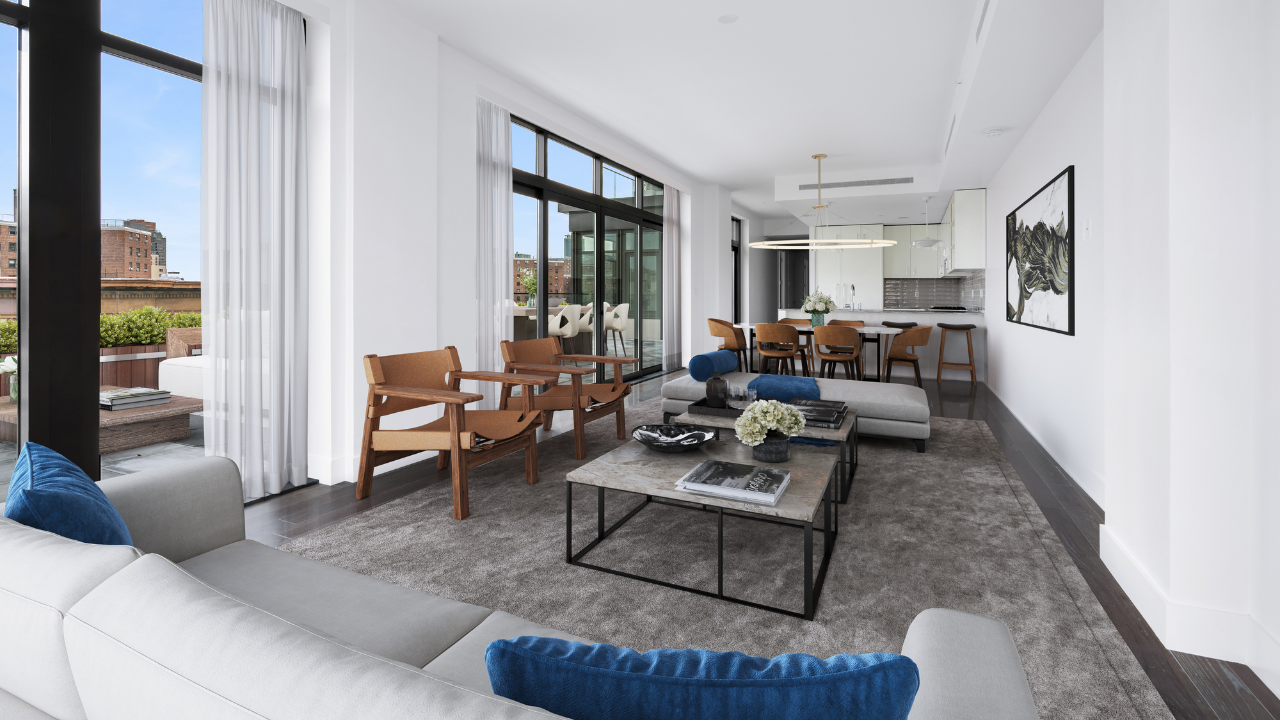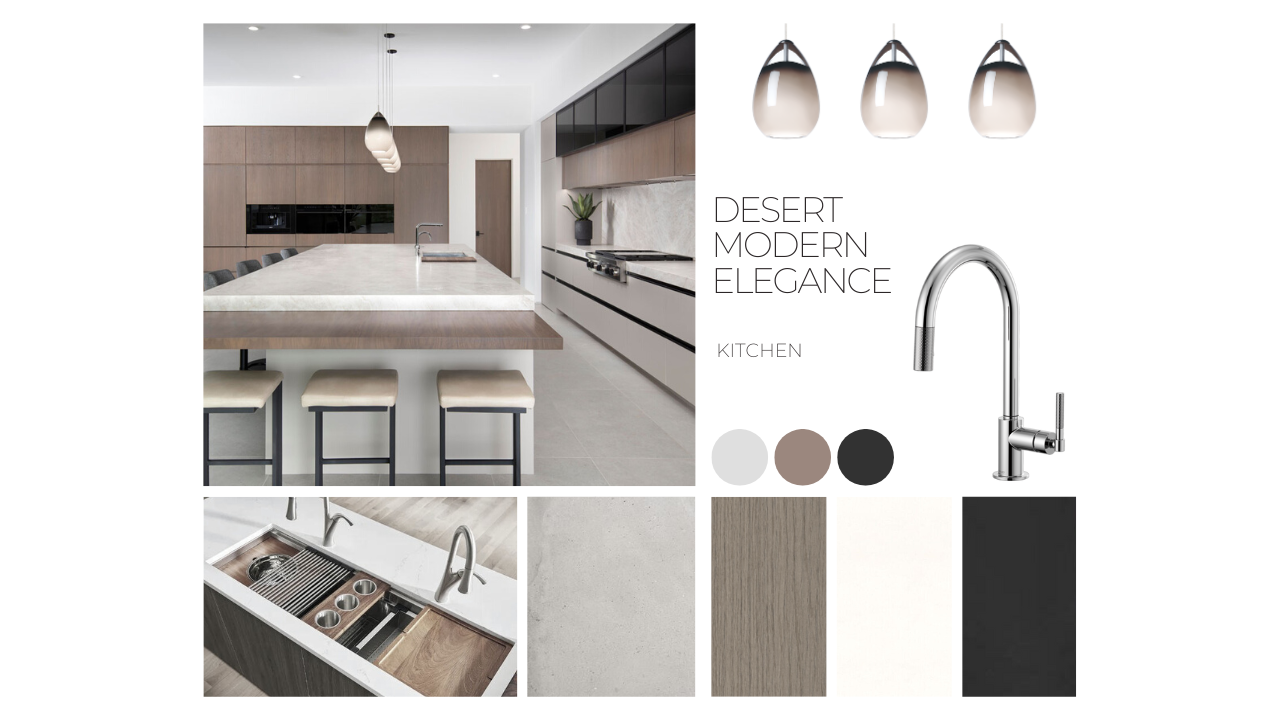
I know it's way more fun to talk about design, but the new year is a time when a lot of you will want to start doing work on your house. The holidays are over, the kids are back to school and life seems to slow down a bit.
So today, I want to give you guidance on one of the most important parts of home renovation that will make sure your projects run soothly and have the outcome you envision.
And it's probably not what you think...
The absolute most important piece of the renovation puzzle is starting with the right team of people to support you in getting the job done well, on time and on budget.
It'll save you so much potential stress and help you avoid the nightmare of added costs from not starting things off on the right foot.
Not having the right people around you is the biggest mistake you can make. And no one wants to be put through a project that takes a turn because of the people you hire (or didn't hire).
You can choose the most beautiful materials, think through every detail and make sure to stick to your budget, but not having the right people around you will be the biggest – and most costly –mistake you can make.
During a renovation the key players on your team will most likely be some combination of a designer, contractor and sub-contractors.
I have advice from hard lessons I've learned, projects that have gone really smoothly and questions I get asked from friends and family.
If you're thinking about doing any work on your house this year you'll want to read through every piece of this advice.
DO I NEED TO HIRE A CONTRACTOR, OR CAN A DESIGNER HELP ME GET THE WORK DONE? OR CAN I DO IT MYSELF TO SAVE MONEY?
If you are doing any type of renovation work, and you're not an experienced DIY'er, you need to hire a contractor. You may think some of the work you want to do isn't a big deal, but even something like replacing kitchen countertops requires several different tradespeople and coordination.
You may be tempted to hire sub-contractors yourself to avoid the cost of a contractor. If you don't have sub-contractors you've worked with in the past (and trust), and understand all the people it will take to get the job completed, it'll take a lot of time and risk to get multiple bids and hire people you aren't familiar with. You'll also be cobbling together a team that has their own schedules and isn't familiar with working together – opening the door for a lack of communication and/or miscommunications.
If you're working with a designer, they likely have the capability of managing the project, finding the right people, getting the bids, coordinating the timing of the work, overseeing the sub-contractors and being on site to manage the project. However, unless it is discussed up front and detailed out in their scope of work in your in your contract prior to beginning, this is not their role.
I've had many clients assume that when they hire a designer the designer is responsible for managing the project. But, unless it's detailed out in their contract, this isn't the case. It's another role that takes a lot of time, responsibility and experience and will come with additional fees.
If you have experience running renovations, have knowledge about all the trades that'll be involved, have sub-contractors you know and trust and clearly understand the timing it takes to efficiently coordinate the work, you may want to take on this role yourself. Just make sure you treat it like a job and have enough time to dedicate to the planning and oversight throughout the project.
WHAT IS THE ROLE OF A CONTRACTOR?
The role of a contractor is to manage the project as a whole and build a team of tradespeople who will work together on the project. They coordinate with you, the designer and the sub-contractors to get the job done correctly and efficiently. They (or their sub-contractors) will measure for and order the materials specified by the designer, store the materials as they arrive and coordinate the demo and installation of all the materials. They coordinate all the work to be done by their sub-contractors in an efficient manner and show up on site to make sure things are going as planned and manage the work. They also offer a warranty on their work, so if there's a problem that pops up over the next couple of years, they will have it fixed. If permits or inspections are needed for additions or major structural changes, they will be in charge of this area as well.
WHAT IS THE ROLE OF A DESIGNER?
The role of a designer is to serve as a resource and guide for completing the design of any renovations and any furnishing and styling of the home. Their services include material selection, fixture selection, lighting/fan selection, space planning, paint selection, decorative item selection, art direction and interior styling. They are there to make the interiors an authentic expression of the Client's needs, rather than making choices derived from any preconceived or stylistic notions. They will also make the interior spaces, fixtures and styling of the project cohesive with the homes architecture and existing furniture and decor. They will order the furnishing and receive the furnishings and manage any necessary returns or damaged items. The designer provides the contractor with detailed specs for the project and is in communication with them throughout the project. They will also make site visits to check in on work. They will manage the installation of furniture and decor once renovations are complete.
WHAT IS THE ROLE OF SUB-CONTRACTORS?
The role of sub-contractors is to complete the trade work for your project. This is your tile person, fabricator, carpenter, painter, electrician, etc. They specialize in at least one area of the construction process. When you hire a contractor they will present you with a bid that includes work from each of these tradespeople, and coordinate with them to come to your house at the appropriate time in the process and they will oversee the work being done.
When you cobble your own team together you will need to find and get bids from each of these people. You will be responsible for letting them know what needs to be done, overseeing the work and coordinating the process.
A designer will often provide you with references for good sub-contractors and potentially even help with getting the bids.
CAN I PURCHASE THE MATERIALS MYSELF TO SAVE MONEY?
Often times contractors will be happy to let you purchase the needed materials. You'll need to pick them up or receive them at the house and will be responsible for the measuring and any damaged materials. The contractor generally will not warranty work on items you purchased.
When it comes to ordering furniture, lighting/fans and other large items that a designer has specified, there are several ways designers work. Some offer specific services where they specify and you order, receive and install. This can be a great option if you are just furnishing a room or two. If it's a larger project, the designer will likely want to place the orders. This allows them to coordinate the installation, receive trade discounts (I pass my discounts on to my clients) and handle any returns, exchanges or damaged items.
This is something that will want to discuss before you hire your contractor and/or designer so the expectations for each person is clear.
WHAT INFORMATION SHOULD I HAVE BEFORE PUTTING TOGETHER A TEAM FOR MY RENOVATION?
- When do you want the renovation project to start and to end?
- Why are you renovating?
- What rooms do you want to renovate? What is the overall scope of the project?
- What specific changes do you want to make?
- How much do you feel comfortable spending on the renovation project?
If you are able to clearly and concisely answer these key questions, then you're ready to begin building your team. From there you'll want to start reaching out to designers, contractors or sub-contractors for bids.
FROM A DESIGNER'S PERSPECTIVE, WHAT ARE GOOD QUESTIONS TO ASK WHEN INTERVIEWING CONTRACTORS?

Listen for how contractors answer your questions. If they’re having trouble communicating now — there are going to be communications issues down the road – guaranteed. If they are open to it, pay a visit to some of their current job sites. This will help you get a feel for how they work and take care of the job site first hand.
Hearing from their client references is also important. While they're not going to refer you to clients who they had a poor experience with, you can still get a good idea of what to expect by looking at their recent jobs and talking to the clients personally. Have your contractor set up dates and times to view their past work if possible.
There are always going to be good contractors and bad ones. My dad was a contractor for about 40 years, so I got to see the ins and outs of their role. You can avoid hiring a bad contractor with the right questions and some due diligence. It's certainly an investment and someone who you'll be in close communication with for a period of time, so take the time to find the right one for you.
Do you have any advice to add to the conversation? Any experiences you want to share? Let me know.





